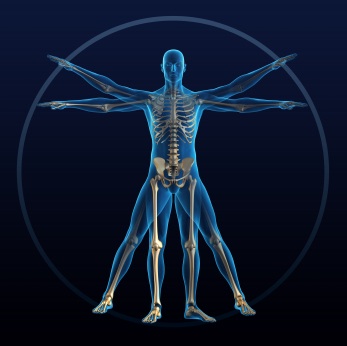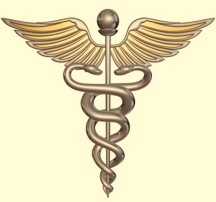A Guide for Physicians
and Other Healthcare Providers
Dealing with the Unexpected Death
Dealing with an unexpected death can be difficult for all involved.
It is certainly difficult for the family and friends who are going through the process of grieving and coming to terms with their loss, but also for the healthcare providers who end up second guessing themselves about what happened and trying to deal with the grief of the unprepared family.
Acute Grief Reaction
The unexpected death is often a “shock” to the emotional foundation of those who loved the person. They frequently go through the same stages described in Kubler-Ross’ book on Death and Dying…
Family members will often have an initial sense of denial, not really believing that this happened, followed by a certain amount of anger because of the unfairness of it all. Their anger may be directed toward themselves, other family members or toward the healthcare providers - the doctors and nurses, or even to the hospitals or nursing homes where the person was staying. This anger is usually unfounded, but the grieving family sometimes has a need to strike out at the “establishment” that “allowed this to happen”. Once they realize that the unexpected death is a reality and that it can’t be undone by bargaining their own lives or by blaming another, depression may set in as a result of feeling helpless and sad about the loss. Finally, the acceptance phase gradually occurs and ultimately the family members are able to go back to their usual lives, even though the sadness may remain.
Each of these phases may last varying times. The health provider may be able to help with the initial process by helping the family understand what happened clinically to cause the death to the best of his or her ability to do so. If you are able to communicate effectively the how and why of what happened without placing undue blame on anyone, this will be helpful as a foundation upon which acceptance can eventually grow.
Even if you don’t know for sure what happened, make an educated guess based on the circumstances and the known statistics for the most likely causes of sudden or unexpected death in certain situations. You may wish to ask the family for an autopsy if you think it is important for you or for them to know the exact cause of death. This is especially true in a younger individual who was previously healthy, and perhaps less so in an older person with known history of severe heart disease for example. Some of these cases may have to be referred to the Coroner when there is no obvious cause of death and there was no prior medical history.
The anger that families may feel after an unexpected death is usually an expression of their grief and a reaction to their sudden loss. It will most likely pass as the acceptance phase occurs. Do not take it personally or react with your own anger. And do not try to be overly defensive. This will only make it worse. Try to explain what you think happened as calmly and compassionately as you can. Helping them understand will go a long way to diffusing the anger more quickly.
If you have been attentive to the patient and family all along, they will most likely be very grateful for everything you have done and there may be very little anger if any. It’s most important to be there for them and be open to their questions, not just after the unexpected death but before it happens.
Effects of an Unexpected Death on Healthcare Providers
The other issue that healthcare providers face is second-guessing themselves – wondering whether the patient died as a result of something they did or didn’t do. This sometimes arouses guilt feelings and concern about their own professional abilities. This in turn could lead to self-anger and depression and contribute to burnout as well.
The best advice I can give on this is to first remember that none of us is perfect even though we’re often expected to be. The second thing is that we all try make the best decisions we can based on the evidence we have at the time the decision is made. It’s always easier to look back knowing what we know now and think that we should have done this or that differently. If we are confident as we go along that we have been careful to think about all the options, that we have considered the details and the information that we have been able to obtain at that time, and if we have consulted the appropriate specialists when necessary, we should not feel guilty if we find out later that there was something else going on that we had no way of knowing about, or if an appropriate treatment turned out to have a devastating adverse reaction. We may feel sad about it, but we should not be deprecating ourselves about it.
It took me a while to learn this. For many years, every time one of my patients died, no matter what the cause or whether it was expected or not, I would regard it as a personal failure – that there must have been something that I could have done to save this person who entrusted his/her life to me. Gradually I began to realize the irrationality of this thinking. First of all, no human has that much power over death, at least not since 33AD, and it’s actually rather grandiose of us that we think we do sometimes. Secondly, death is part of life. None of us is immune to it. We all have to cross that line sometime. As much as we want to try to control it or prevent it, we’re not going to be able to do it every time. That’s just the nature of our existence here. To make yourself personally responsible for every death that occurs on your watch is not only irrational but also too much of a burden to bear. Furthermore it impedes your ability to do a good job for the next person.
As time goes on, you gain a greater amount of experience in understanding this. Ultimately you become a better physician and have a greater appreciation for what could go wrong in particular situations that have nothing to do with your ability as a physician. You can then become a better communicator with patients and families about potential problems, complications and prognoses before death as well as being able to provide compassionate reassurance to families after death that everything was done that reasonably could have been done.
References:
I Wasn't Ready to Say Goodbye: Surviving, Coping and Healing After the Sudden Death of a Loved One
(adlink) by Brook Noel
This page was last updated on August 7, 2010.
From "Unexpected Death" to "HomePage"
Disclaimer | Privacy Policy | Copyright | Sitemap | Contact | Comments












 On this day of giving thanks, I am reminded of all of those who have supported this site over the years. I welcome your comments, your guest articles, and your readership. I am deeply grateful for all…
On this day of giving thanks, I am reminded of all of those who have supported this site over the years. I welcome your comments, your guest articles, and your readership. I am deeply grateful for all…
